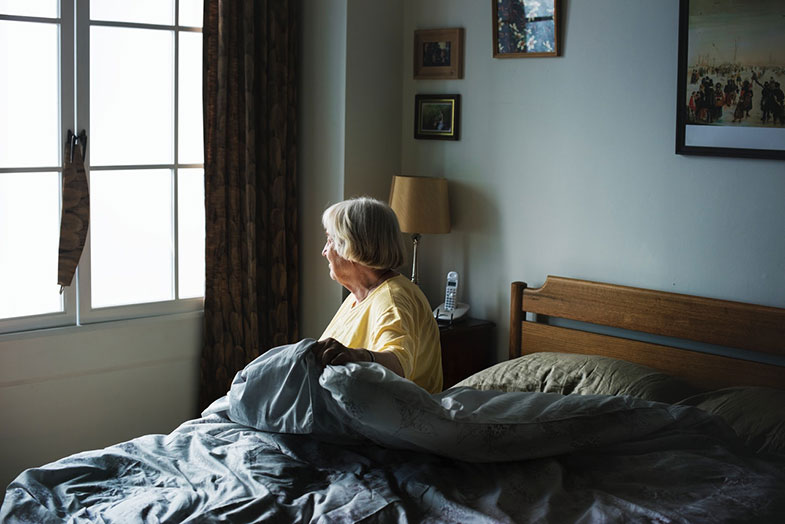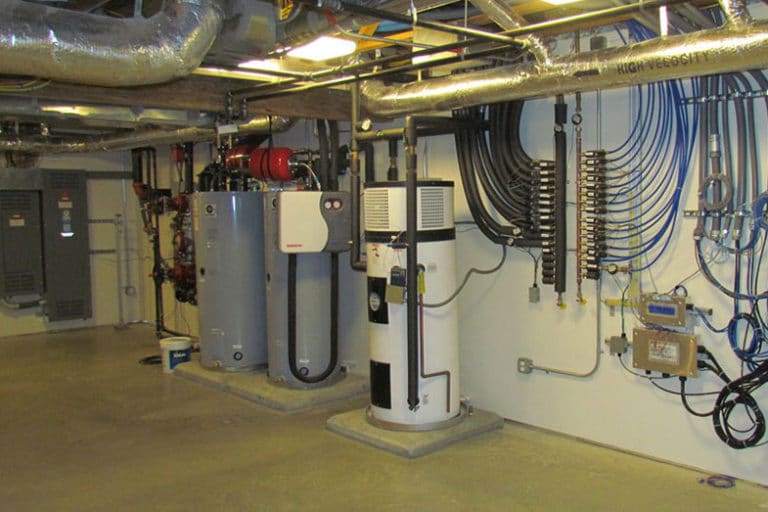How Much Deep Sleep Do Seniors Need?
Disclosure: We may get commissions for purchases made through links in this post.
It is common for individuals who are in their 60s or above to struggle in getting enough deep sleep. Since deep sleep is the stage where our organs detoxicate, it is vital for elderly people to get enough of it.
But how much deep sleep is enough for seniors? Deep sleep should account for at least twenty percent of your overall sleep. Seniors require about 2 hours of deep sleep each night in order to feel rejuvenated and fully function the next day.
A common misconception is that older people need less sleep. The truth is, our sleep requirement does not decline with age. Although our need for sleep changes over our lifetime, seniors need just about the same amount of sleep as younger adults. To understand the role of deep sleep in the quality of rest every individual should get, let’s take a closer look at the stages of sleep.

Understanding the Different Sleep Phases
Sleep occurs in various stages and the cycle is repeated multiple times throughout the night. But, when it comes to the stages of sleep, it can be broken down into two categories – the light sleep and the deep sleep.
The Light Sleep
If your sleep is often shallow and not restful, then you are probably just experiencing light sleep. Light sleep has two stages. In the first stage, you are able to hear the things around you and can still have a sense of your surroundings. It is usually a quick transition to the second stage, so you are not in it for very long.
The second stage of light sleep isn’t shallow, but you can still be easily awoken by sudden noises. It is an essential stage, however, as it often takes up more than half of your night. This is the stage where your body starts processing your emotions and memories. Therefore, it is easy to guess that this is the phase where you start to dream.
In this stage of light sleep, whatever is happening around us can still affect us. For example, a family discussion in the background can make its way in our dreams, making it seem like we’re dreaming that moment. Although this is half true, what’s happening at this moment is that you still have a sense of awareness, thus soaking everything in partially.
So, be careful if you wake up the next day if you remember something like this because you may have some regrets pushing it aside like it was just a dream. During this stage of light sleep, your metabolism is also beginning to regulate itself in preparation for the next phase of sleep.
The Deep Sleep
During this stage, we become less conscious and responsive to any outside stimulus. In other words, we disengage from our environment while in deep sleep mode. It can even be quite hard to wake a person up during this stage and might require a lot of shaking.
Deep sleep is crucial for cleaning the body and replacing damaged or old cells. The muscles start to fully relax and the breathing slows drastically. We do not dream while deep sleeping, but the body does a variety of things so you can be physically prepared for when you wake up.
Our body also begins to secrete hormones for growth, which is essential for repairing and rebuilding muscle tissues. If you are awoken during this stage, you might feel disoriented and unrested for some time due to your body taking a moment to adjust from being in an unconscious state.
Why is Deep Sleep Crucial for Seniors?

Indeed, getting 7 to 9 hours of sleep each night means you are spending one-third of your life asleep. This may seem like a lot of time doing nothing, but our body and mind are actually just as busy so that we can be healthy and productive when we’re awake. Therefore, the lack of sleep can do more harm than good and can even be detrimental to our overall being.
Sleep is just as important to our health as the water we drink and the air we breathe
When you deprive yourself of sleep, you will suffer in myriads of ways. Remember that it is when we’re sleeping that our body repairs and regenerate new cells. Our need to rest daily is as basic as our need for food and water. Many studies have proven that just because you have gone without enough sleep for many parts of your life does not mean that it would not impact you at some point later in your life.
Older people are already susceptible to illnesses, hence not getting sufficient sleep only increases those risks
The elderly are much more prone to a variety of diseases. With their bodies starting to deteriorate as they age, they could avoid many certain conditions if they allowed themselves to do the brain’s job through proper sleep. In addition, sleep deprivation has been associated with conditions like obesity, stroke, diabetes, heart disease, and Alzheimer’s disease. Interestingly, these diseases that kill people later in life have a direct link to sleep deprivation.
Not only does poor sleep affect the body of aging adults, but also their mental and emotional health
In fact, it has been found that those who do not have good sleep the night before tend to be moody, more irritated, and easily angered the next day. They will also have less energy and have a poor ability to deal with stress and anxiety.
Although an individual needs all the sleep stages to have a good night’s rest, deep sleep is vital for brain function and health
It is helpful for the brain to create and store memories, as well as improve its ability to recall and collect information. Deep sleep plays a significant role in our memory, otherwise, without it would make it difficult for the brain to make new memories or retain information.
You might think that you already know enough having lived for a long time, but it won’t do you any good if you’ve forgotten what you did yesterday or where to start your new day off.
How Much Sleep is Adequate for Seniors?
There are actually conflicting theories about the number of sleep seniors need for their mind and body to recuperate. While some data claim that older people can remain healthy even with less sleep than the younger population, other experts reveal that they need just as much.
What we do know is that children and teenagers do need the most amount of sleep as these are crucial body development stages in their lives. For seniors, their needed sleep comes more for continued strength and vigor to keep going. Regardless of the truth, however, these theories all agree on these facts:
- The ultimate indicator of having sufficient sleep is the way a person feels during the day. This means that if you feel energized the next day, then you are more likely to have slept well the night before. You might have even completed all the different stages of sleep, which should always be your desired goal.
- Most aging adults are sleep deprived. These individuals either wake up multiple times during the night or have trouble falling asleep, so it is not uncommon for them to experience a lack of sleep. Some experts also claim that senior adults commonly spread out their sleep over a twenty-four-hour period. They would usually sleep for four to five hours each night and take naps during the day. This habit is considered fine, so long as they achieve an adequate total amount of sleep.
- The sleep cycles of older adults change over time. Seniors slip into an advanced sleep phase wherein their biological clock desires earlier wake and bedtimes. When they keep this habit, they may be prone to sleep deprivation and at risk of all the health issues associated with it.
A lot of people think that poor sleep is not a cause of alarm and a normal part of aging. Although our patterns may change as we age, lack of or disturbed sleep every night is not a normal aspect of aging or of any age for that matter.
Related Questions
There are many factors that can affect the quality of our sleep. The key thing to remember is that you have an understanding of how it works and the knowledge of what it is we need in the circumstances that we’re in throughout our lives.
Here are a few other questions you could consider in helping you, as a senior, to have a better deep sleep.
- “Do you count your number of sleep hours?” – Knowing how much you sleep each night is a good start to knowing how much more you need or how much you’re lacking. Our body can stack up on our lack of sleep, so if you had only five hours of sleep the night before, then you can remember to have those needed three hours sometime during the day.
- “Do you have sleeping aids?” – Sleeping aids such as soothing music or scented candles can help you fall asleep quicker and lead you to reach the deep sleep stage sooner. These aids will also help you feel more relaxed mentally and physically.
- “Do you limit your workload?” – Reaching an old age can mean no more full-time work. This can lead you to focus on chores at home to keep you busy. Although being busy is good for the body to stay strong, overwork can instead be damaging to it. Rather than shortening your work, it would be best to space them out.
Conclusion – How Much Deep Sleep Do Seniors Need?
As you remember the importance of deep sleep and how much you need of it daily, you can be sure to be led to a healthier and stronger lifestyle. Not only that, but you will also start to notice changes in your mood and attitude as you allow your body to have at least 2 hours of deep sleep.
Whatever means or methods you try, you will soon realize that it is definitely a worthwhile endeavor to do more of “nothing” each night.






